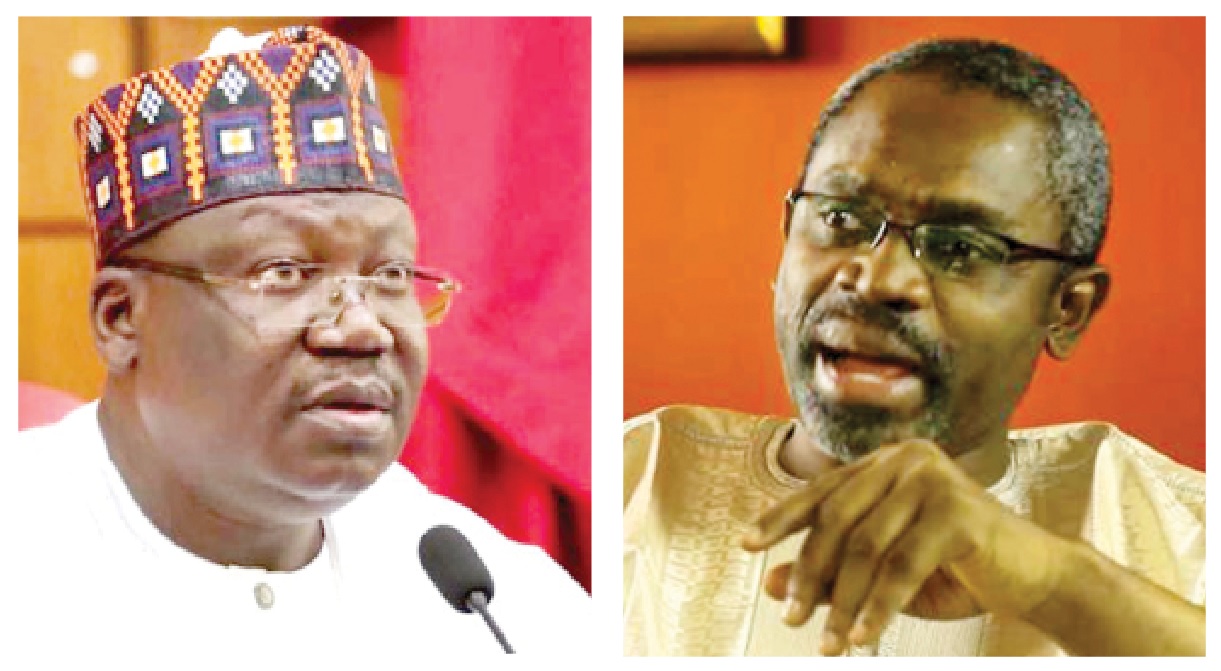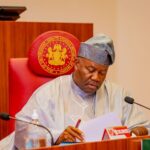The leadership of the National Assembly has faulted the implementation of the Federal Government’s Social Investment Programme and called for an enabling legislation in line with global best practices.
The Senate President, Ahmad Lawan and the Speaker of the House of Representatives, Femi Gbajabiamila made their reservations about the scheme at a meeting held on Tuesday with the Minister of Humanitarian Affairs, Disaster Management and Social Development, Hajia Sadiya Umar Farouq and some top officials of the Ministry.
Lawan and Gbajabiamila said the Social Investment Programme needed a reform to make it more efficient and effective.
The meeting convened by the leadership of the National Assembly against the backdrop of the ongoing Federal Government intervention initiatives aimed at assuaging the plight of the vulnerable Nigerians against COVID-19 pandemic.
Daily Trust reports that Oyo State Governor, Seyi Makinde, had on Monday also faulted the Federal Government’s palliative measures in containing the spread of coronavirus in the state.
Makinde spoke in a telephone interview on a popular radio programme in Ibadan.
“Two days ago, in the task force meeting, the Head of Service told me that the Conditional Cash Transfer from the Federal Government would be N20,000 to people in 10 local government areas of Oyo State and I said, it is good but this programme predates this administration and I have never been impressed for one day about the way they identified the poorest and the impact,” the governor said.
But on Tuesday, the Senate President said the poorest of the poor have not been sufficiently captured by the programme.
“We feel that we need to work together with you to ensure that there is effectiveness, there is efficiency, that those who are supposed to benefit, benefit directly,” Lawan said, according to a statement by his media aide, Ola Awoniyi.
He said the conditions and guidelines for the intervention programmes were too stringent for the most vulnerable Nigerians, the targeted beneficiaries.
“When for example, some conditions are set, that those who will benefit will have to go online, through the internet or BVN and the rest of it.
“I want to tell you that the majority of those who are supposed to benefit have no access to power. They have no access to Internet. They have no bank account, so no BVN.
“Infact, many of them don’t even have phones and these are the poorest of the poor. Yet, some of the conditions or guidelines which you set inadvertently leave them out,” Lawan said.
He, however, said the federal government would be able to reach more vulnerable Nigerians who are in serious distress even before the coronavirus when it works with the National Assembly.
“Now with Coronavirus, they need our attention more than ever before. The time has come that we review the ways and manner we use to deliver the services under the SIP to Nigerians.
“So, we need to put on our thinking cap and work out some strategies on how to identify the poorest persons in Nigeria. I think we have not been able to reach far out there to get them properly captured,” Lawan said.
Also, the Speaker of the House of Representatives, Gbajabiamila told the minister that she is right now in the eye of the storm because all eyes are on her.
“The questions are going to be asked, how do you come about your list, how comprehensive is your distribution list? What are the parameters? What is the geographical spread? So, these are tough questions that are going to be asked but I want you to look at them as frank questions that we need to ask,” he said.
The Speaker said the relevant Committees in the House have been complaining bitterly even before the Minister took over the scheme about the inability to access information about the scheme.
In her response, the minister said the SIP was moved to her ministry for “sustainability and institutionalisation,”
“I am very pleased to hear that we are going to work together to see that we give a legal backing to this programme because that is the only way to go,” the minister said.

 Join Daily Trust WhatsApp Community For Quick Access To News and Happenings Around You.
Join Daily Trust WhatsApp Community For Quick Access To News and Happenings Around You.


